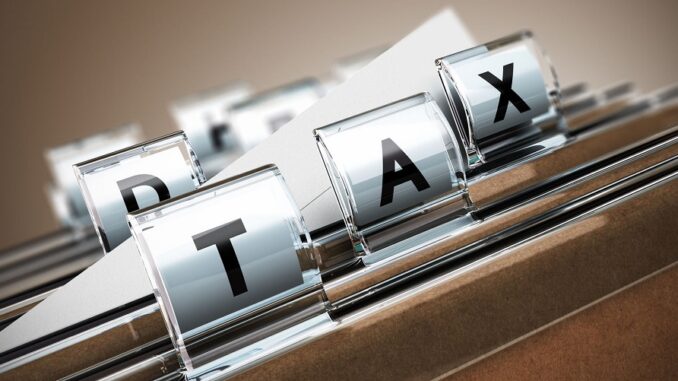
It does not come as a surprise that the drive by financially hard-pressed states to raise internally generated revenue is making life and business difficult for citizens, considering the many battles the average Nigerian is fighting for survival. States are statutorily and logically entitled to raise money from the public to fund public expenditure in the interest of the public. But it is indefensible that in a democracy, a government of the people, for the people, acting through the people’s elected representatives, should impose unbearable taxes and levies on citizens. That cannot possibly be the intendment of representative democracy.
Ordinarily in the system of government Nigeria operates, payment of legitimate taxes by the citizens is a non-negotiable, even sacrosanct, civic duty. It is akin to a ‘mortal sin’ to not pay one’s taxes because government needs the money to provide basic amenities such as infrastructure, social services, and jobs, among others, for the people.
However, a ‘‘condition precedent’’ to tax payment is that the government must create and continually improve an environment conducive for the people’s livelihood. To this end, the ‘‘Fundamental Objectives and Directive Principles of State Policy’’ of the constitution enjoins in Section 16 the State to do everything within its powers to, through ‘justice and equality of status and opportunity,’ enable Nigerians engage productively in any economic activity of their choice; in addition to government’s primary duty to ensure the security and welfare of the people. If government creditably performs these functions, the citizens can go about their lawful businesses and will be well positioned to pay taxes.
A people largely unemployed, or under-employed (disguised unemployment) are not in a position to pay the taxes and levies needed to run a functional and efficient government. Where will the money come from? This is why job creation is a top priority of governments in civilised jurisdictions. Sadly, the rate of unemployment in Nigeria is abysmally high. The National Bureau of Statistics (NBS), in its second quarter 2020 report puts it at 27.1 per cent – a 4 per cent rise from corresponding time in 2018. Within the 2020 figure, 13.9 million youths aged 15- 34 were jobless, 12 million women were jobless, 2.9 million graduates were jobless. In such circumstances, revenue that can accrue to government coffers is inevitably stunted. Meanwhile, states devise and design all sorts of taxes and levies that citizens must pay.
In Lagos State for instance, collectible taxes run to as many as 25, ranging from Personal Income Tax, stamp duties, Poola Betting tax, development levy on every adult, to business premises registration fee, market taxes, land use charge, vehicle radio licence tax and signage and mobile advertisement taxes.
The local government is empowered to collect another 21 taxes and levies on shops and kiosks, markets, merriment and closure of road, establishment of a religious place, signage and advertisement and wharf landing. The Federal Government collects nine different taxes within the same state jurisdiction, including a so-called National Information Technology Development levy.
In the Federal Capital Territory (FCT), business owners are groaning under multiple taxes by FCT agencies reportedly combing business areas with enforcers called Abuja Municipal Area Council (AMAC) marshals. With all these layers of demands, small, medium, and big businesses are groaning; with so much hassle and harassment, many owners have simply closed shop, throwing staff into the unemployment line.
People more willingly pay their taxes firstly, if they operate in an environment that fosters their financial empowerment to so do, and second, with assurances that their monies are judiciously applied. Yet, upon all their drive, the internally generated revenues (IGR) of most states are simply disgraceful. The 36 states and the FCT reportedly generated N612.9 billion in the first half of 2020. This was 11.7 per cent less than the N693.9 billion generated in the corresponding period of 2019.
There is something fundamentally wrong with a state not able to meet its constitutional obligations to its inhabitants. Many reasons explain this. The first and most important is the insufferably obnoxious clause in the constitution that denies states and local councils the full ownership of, and rights to exploit their natural resources.
This is a violent act against the spirit and entire intendment of the concept of federalism. Second, governments at every level of the federal structure are far from prudent with financial resources; a wise man can, by prudence and wise investing, turn little money into much. The managers of state affairs in Nigeria are more consumed by a spirit of conspicuous consumption with the consequence that the little funds available to serve the public good are spent to serve their own narrow ends. Pray, why would a public officer of an IGR-poor state want to drive around in the same type of official vehicle of its richer counterpart? Why would the governor of an IGR- poor state fly First Class or go about in hired planes as does the chief executive of a much richer state? It should not be so if indeed people in government are patriotic enough to live by the common sense adage of ‘‘cut your coat according to your cloth.’’ Third, as regular exposes of corruption within government system show, too much of available funds are being stolen. Officials must refrain from taking for themselves what belong to us all.
Besides creating employment opportunities, government is supposed to protect businesses and jobs so that citizens can be gainfully engaged as well as generate income for themselves and for the purpose of good governance.
Therefore, governments at federal, state and local levels must be far more prudent with public funds, create conducive conditions for people to be employed or to self-employ, and review and reduce the innumerable taxes and levies that are making the electorate miserable. After all, Nigerians did not vote for a promised ‘Change’ that would worsen their living conditions.
END

Be the first to comment